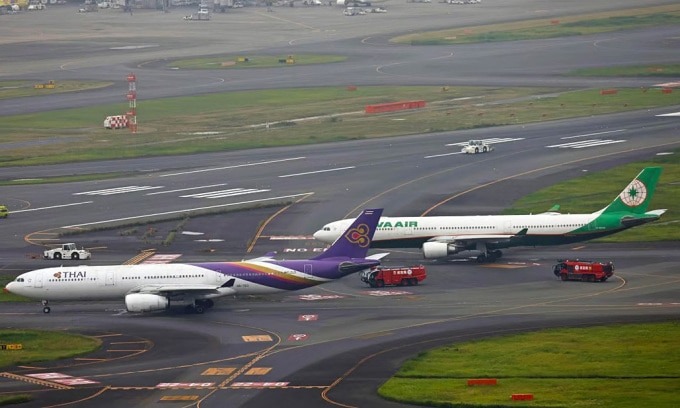The Airline Operators of Nigeria (AON) has raised the alarm over inadequate Air Traffic Controllers (ATCs) in the aviation industry, saying the development posed safety threat.
AON President, Alhaji Abdulmumeen Yunusa Sarina spoke in Kano during the 53rd Annual General Meeting of the Nigerian Air Traffic Controllers’ Association (NATCA) with the theme, “Sustainability of the Renewed Hope Agenda in Aviation: The imperative of manpower development and efficient Air Navigation Services.”
He pointed out that there is an acute shortage of qualified air traffic controllers in Nigeria, prompting the recall of some retired ATCs to meet up with the shortage.
The AON president and president of Azman Group, who chaired the AGM decried the inadequate number of ATCs even as he called for migration into satellite-based navigation to reduce flight delays.
“Aside from adequate and quality training of Air Traffic Controllers, there is also the issue of having them in sufficient numbers to man the various Air Traffic Installations around the country.”
He noted that it would not augur well for the industry to expose the personnel, especially ATCs to long hours with irregular shifts which could impair their performance.
“Human factors in aviation have been identified as being responsible for about 50% of major aircraft accidents. This can be as a result of aviation personnel being subjected to adverse physical and psychological working conditions that can eventually lead to serious problems.”
He called on the Management of Nigerian Airspace Management Agency (NAMA) to employ more Air Traffic Controllers to address the spiraling acute shortage of trained manpower for safety, efficiency and increasing the operating window for the airlines nationwide.
Minister of Aviation and Aerospace Development, Barr. Festus Keyamo, described ATCs as the unsung heroes in the aviation industry while appreciating their sacrifice and professionalism in the face of daunting challenges.
The minister who was represented by Mr. Olusola Oyekunle, a deputy director in the Ministry, said despite the challenges faced by ATCs ranging from resource constraints to the high-stakes nature of their responsibilities, they “Have remained steadfast in your commitment to ensuring the safety, efficiency, and reliability of Nigeria’s airspace.”








